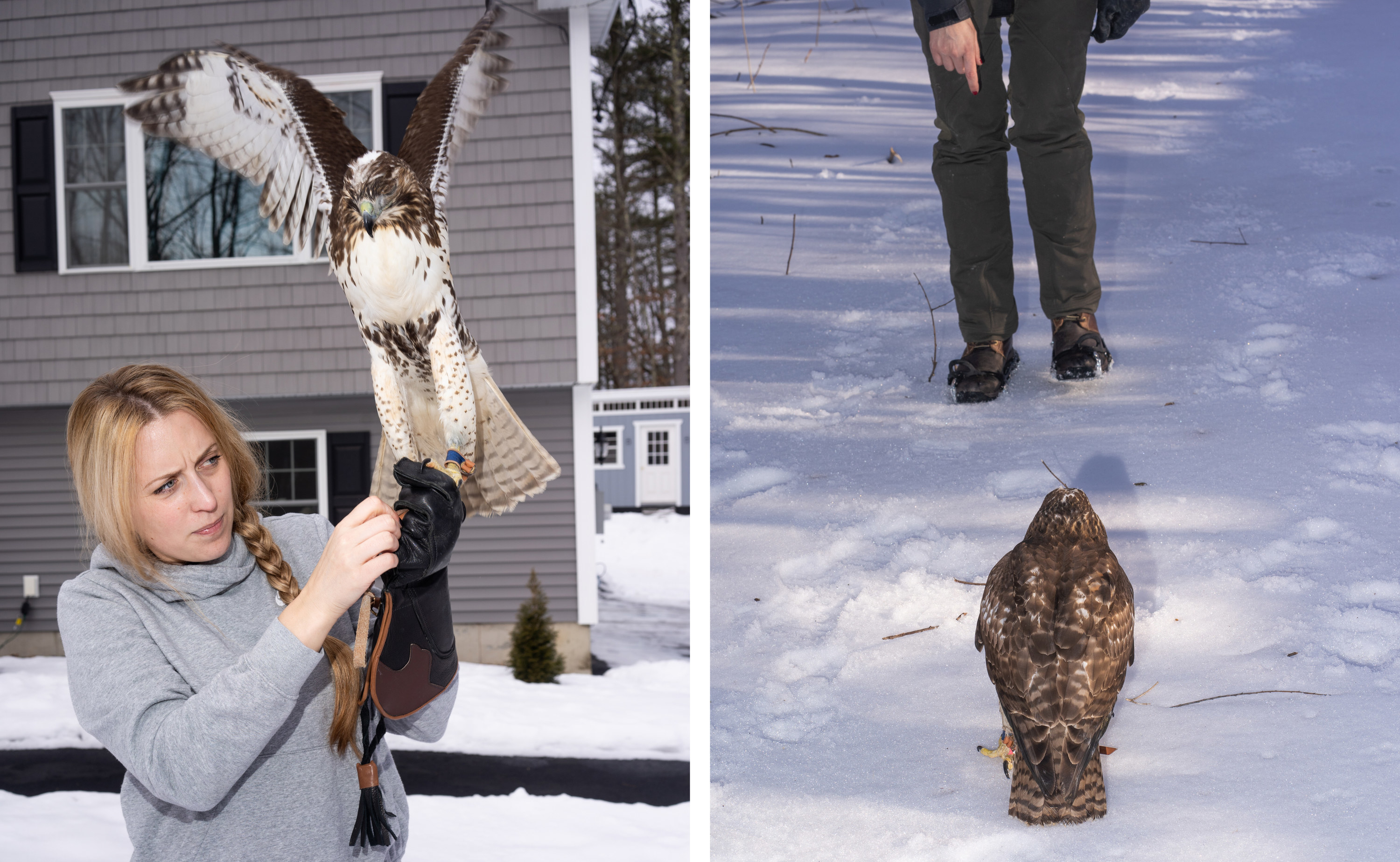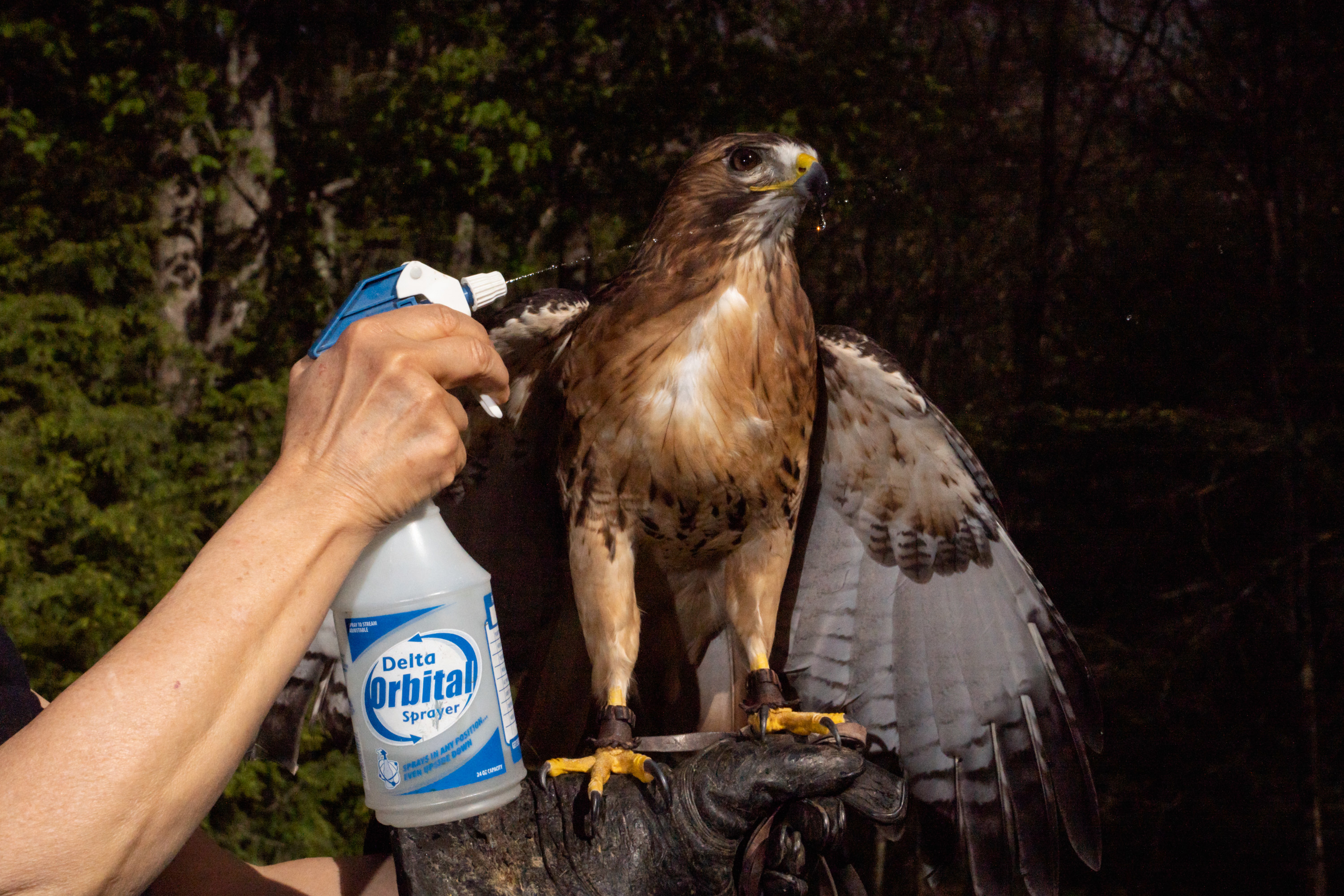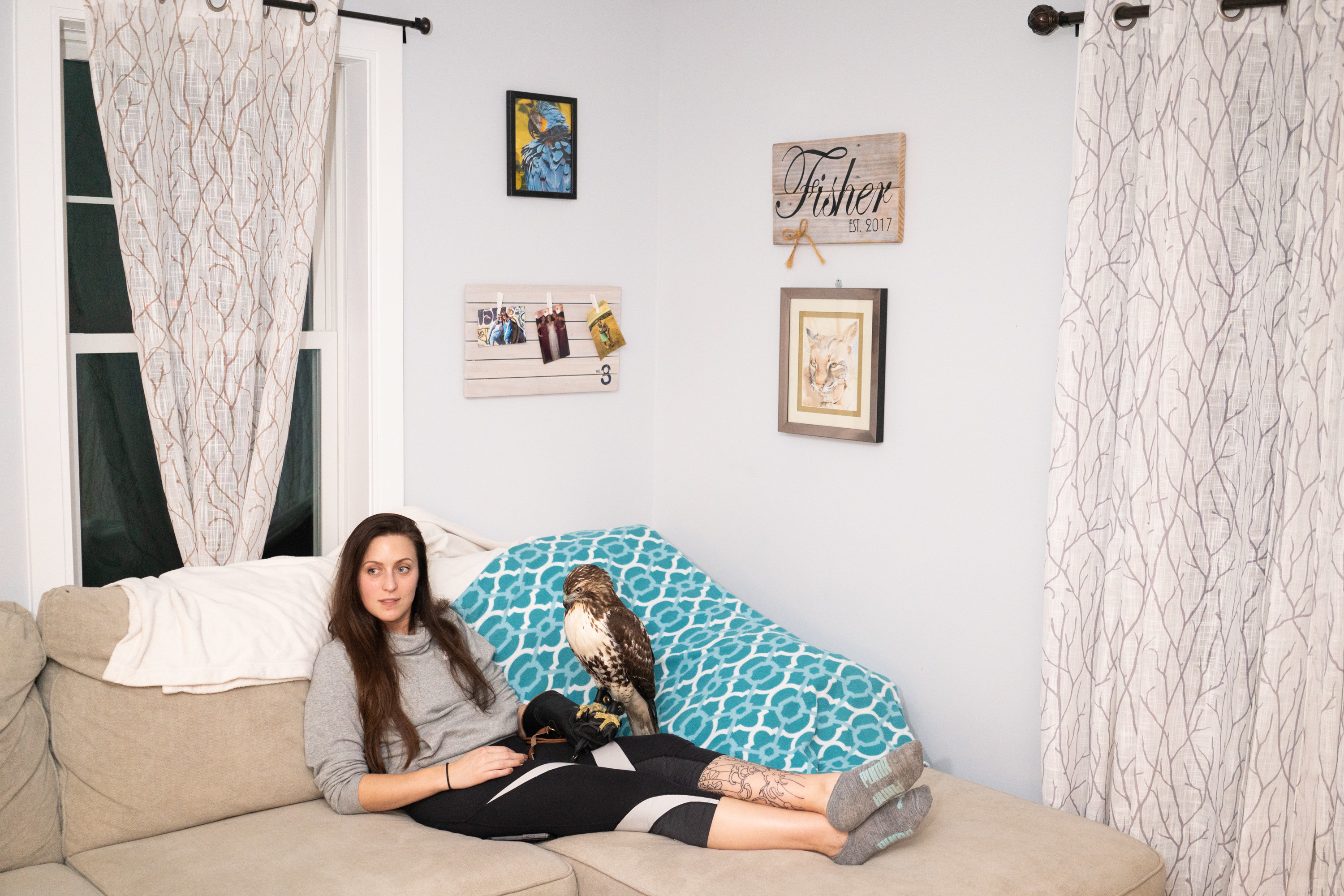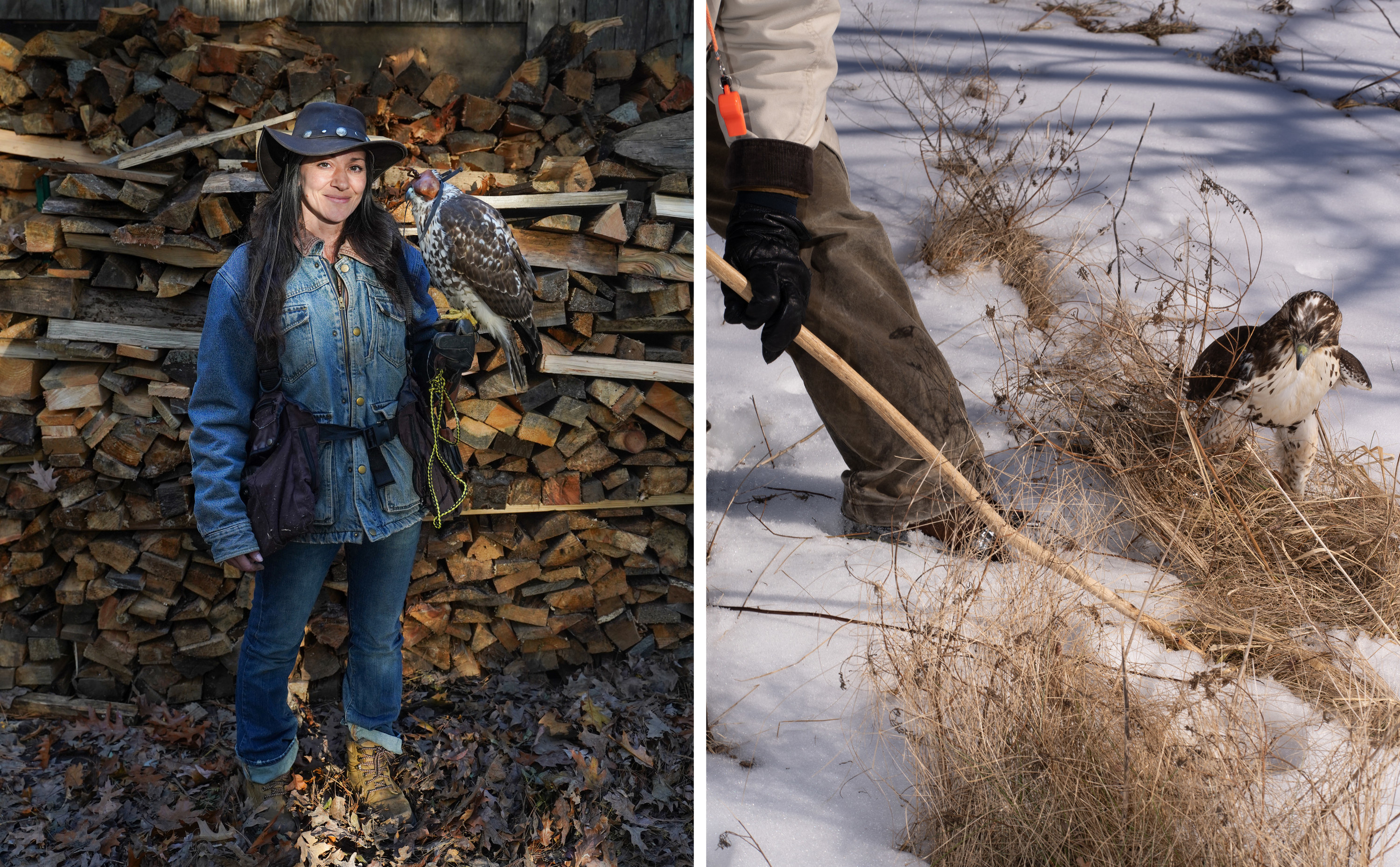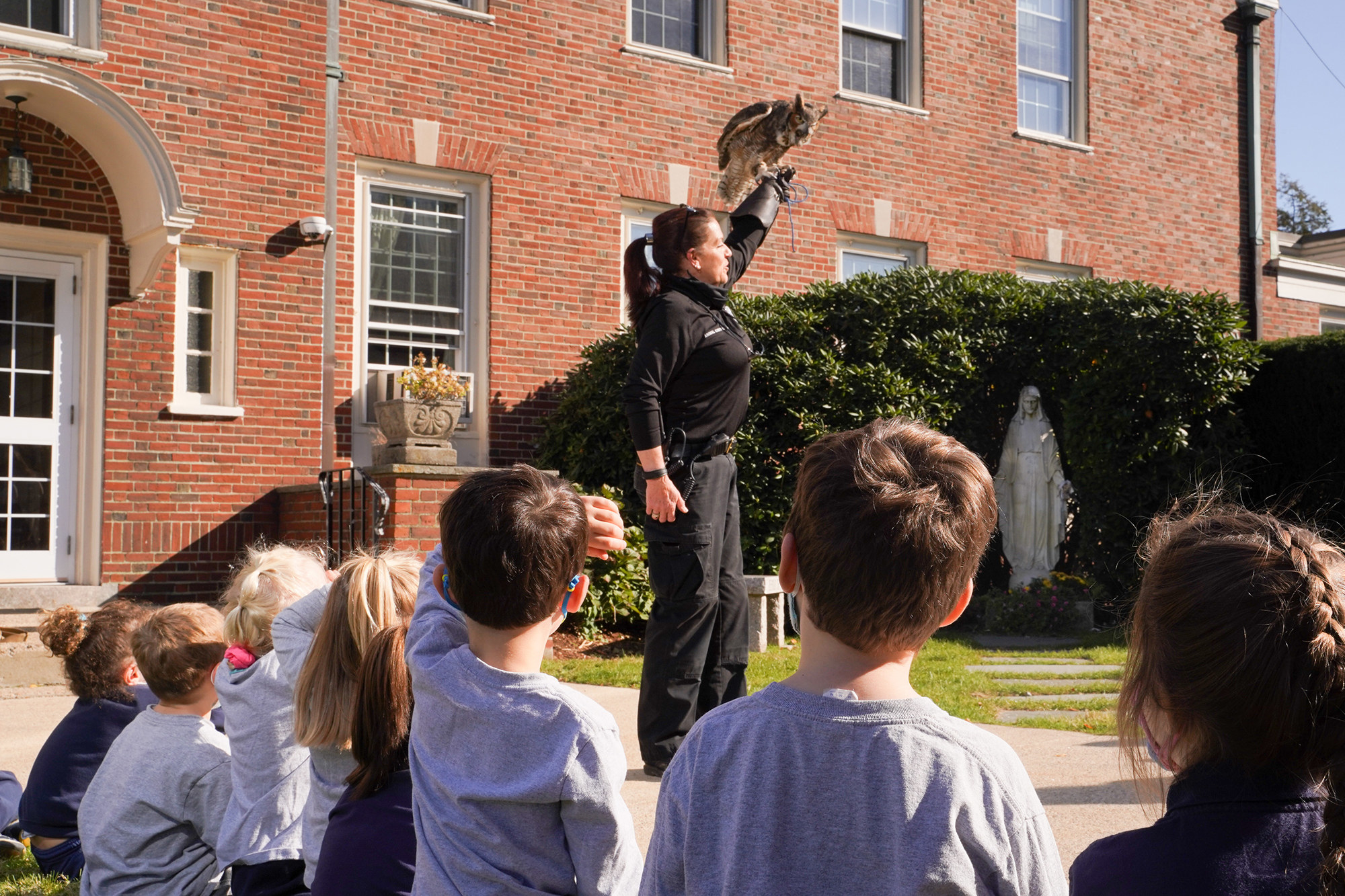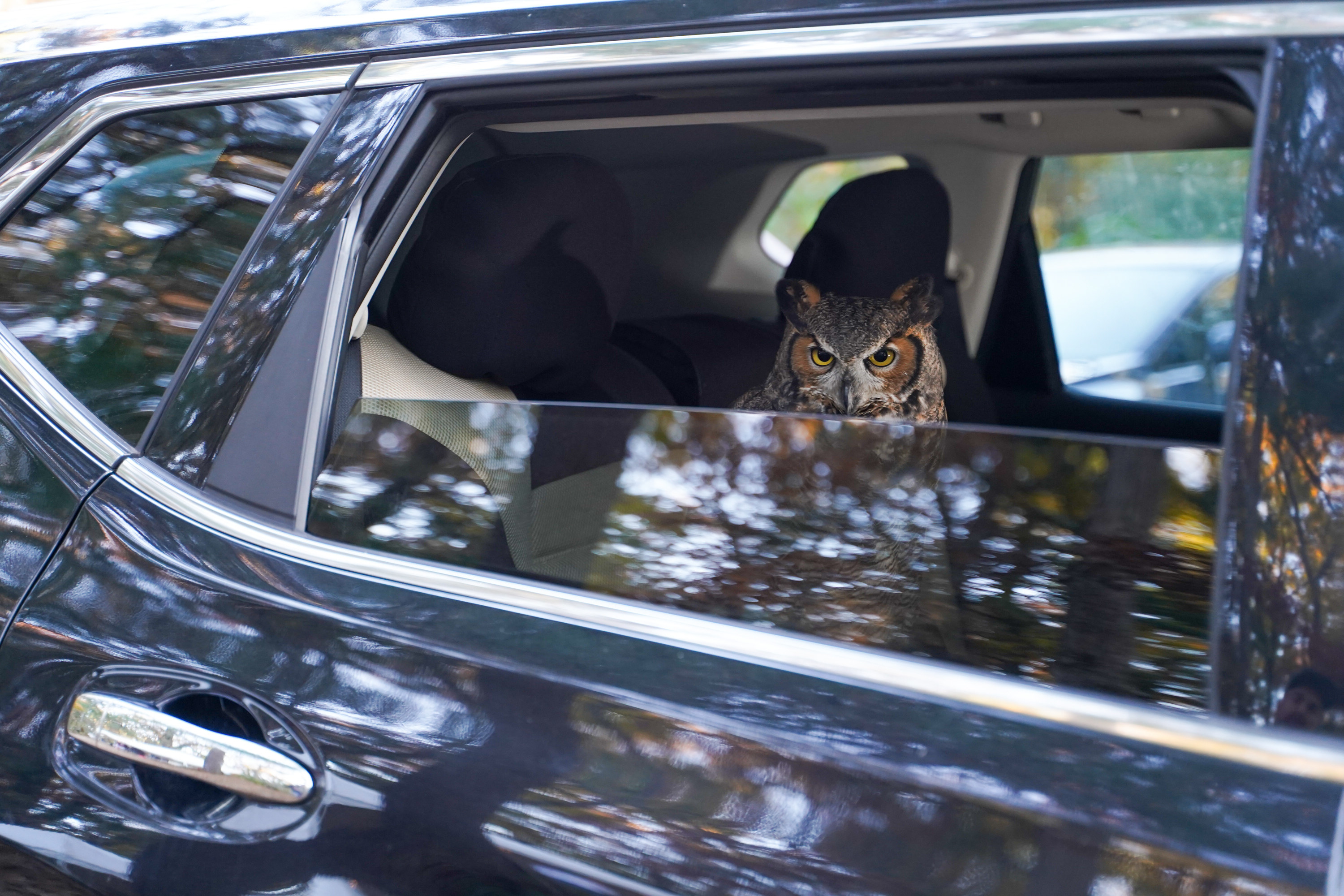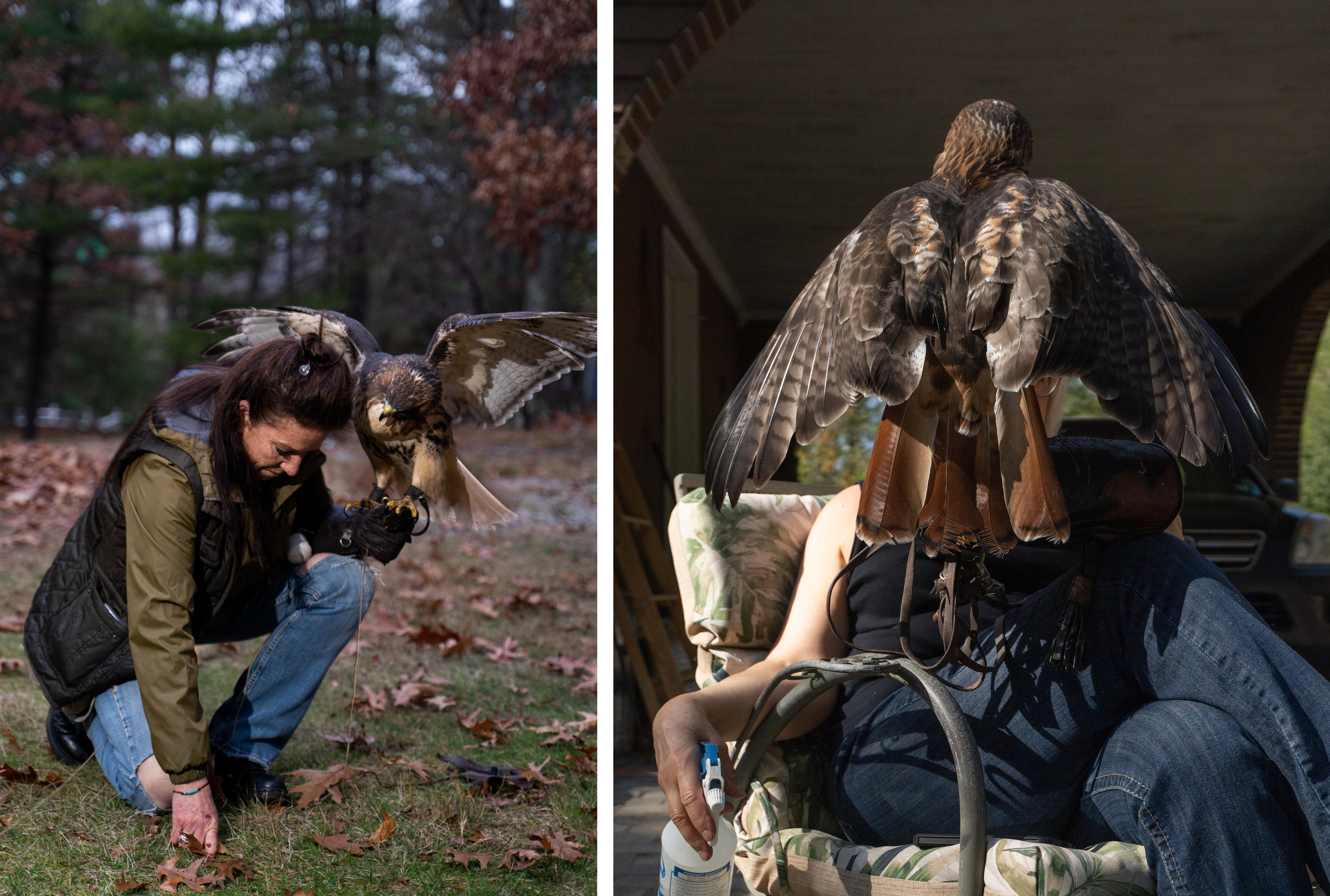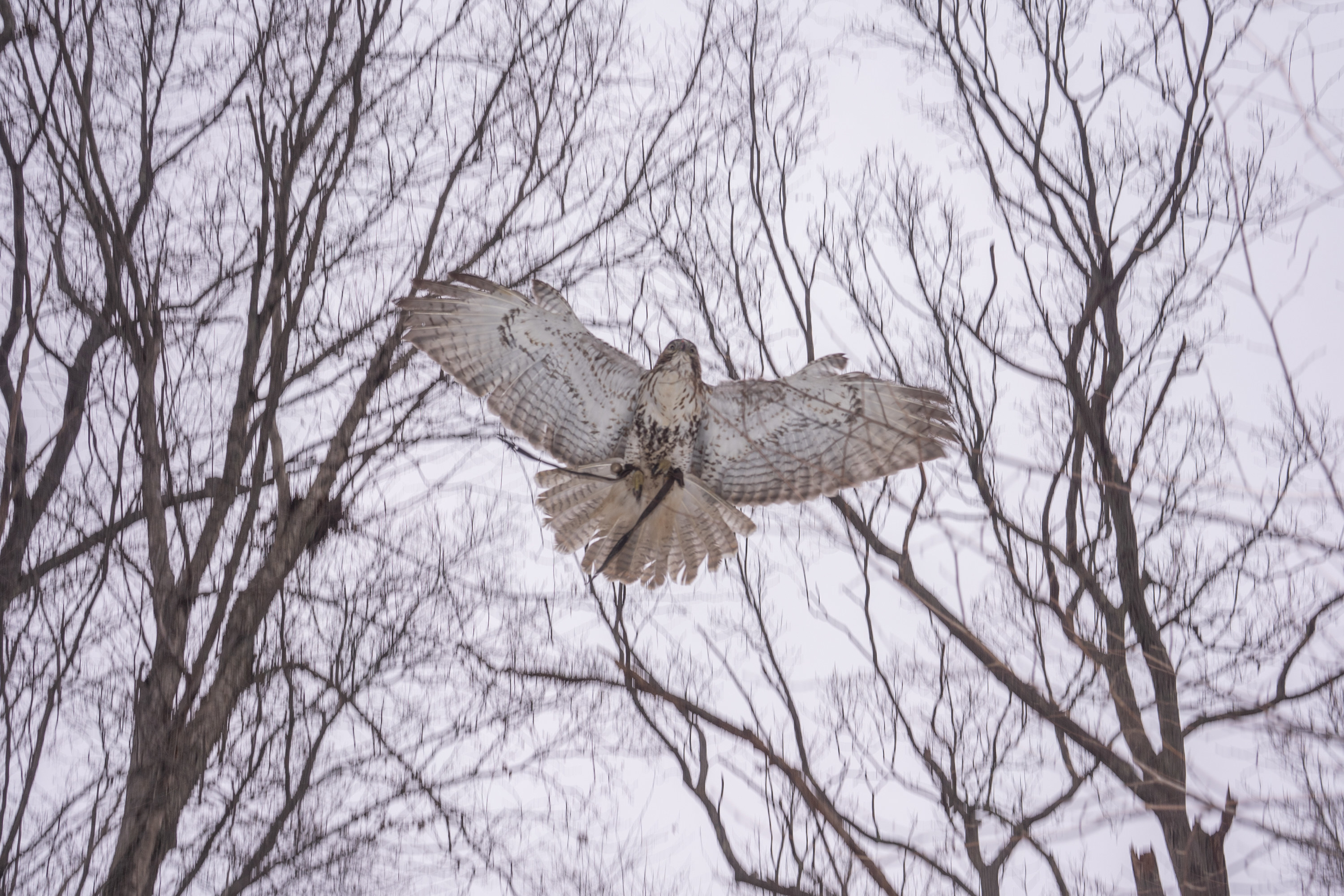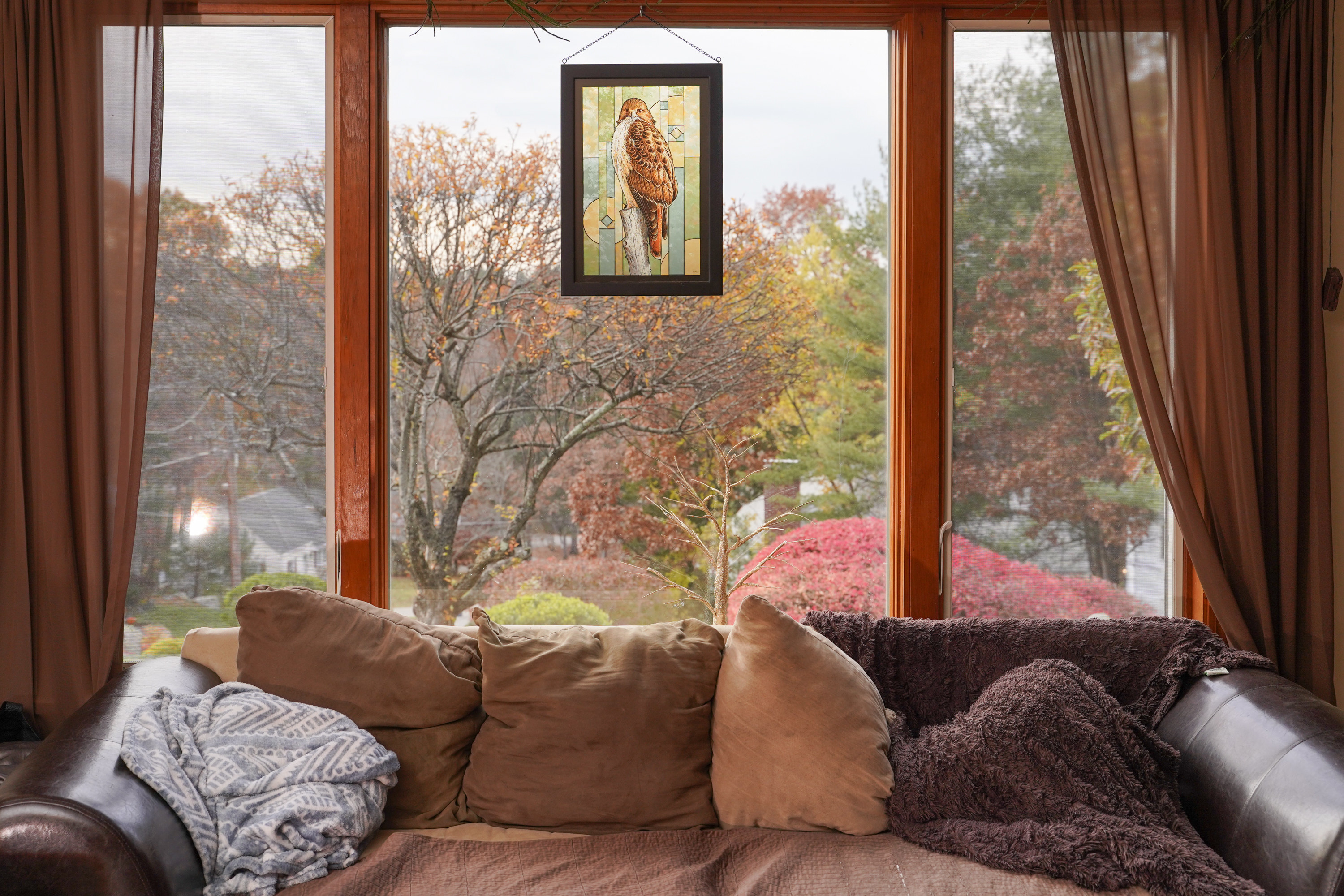Like most kids, Billy Hickey was fascinated with the wild when he was growing up, outside of Boston. When he went to the International Center for Photography in 2019 to pursue his passion for photography, he immediately turned to the outdoors. “Photography helped me understand my love for nature,” he told us. “I feel like I fell in love with them both at the same time.”
He contacted the local animal control officer, Diane Welch, and discovered that she had been practicing falconry for 30 years. The stunning visuals of the hawks, as well as the detailed history of the sport and the devotion of Welch and the other women falconers to their birds and the environment, captivated Hickey, and he spent over a year following them.
“Falconers made contributions to conservation efforts in the 1970s by being an integral part of bringing peregrine falcons from the brink of extinction, which feels like a rare environmental success story,” Hickey said. The Peregrine Fund, which was formed during the population restoration, is led by falconers and is still very active in conservation efforts today.
We spoke with Hickey about falcons, training, and how he got the birds to “tolerate” him.
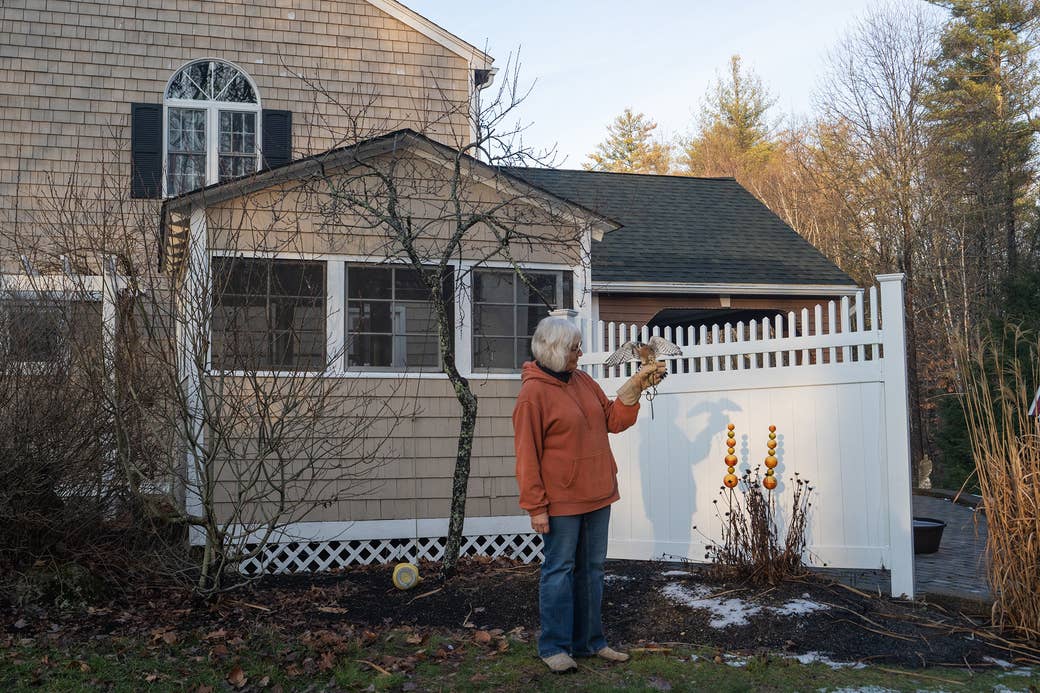
How do you describe falconry to people when you talk to folks for the first time?
A lot of people don't realize it exists; they think of it as a fantasy thing. These women form relationships and partnerships with their birds that last for years. These hawks are all juveniles when they are trapped, which means that they need to be under 3 years old to protect the breeding populations. Before 3, they have done some hunting and they have basic skills. When the trainers take them in, [they] give them 5-star meals and Olympic-level training. These women share their lives with these birds, but the birds don't love them. A falcon is not a pet, but the birds understand that this is someone in their lives who will provide them with food and who they can trust. They are training these hawks to hunt and asking them to work with you as a predator seeking prey.
There is a community of people doing this in New England, but I chose to focus on the women. I come from a family of a lot of women, and I'm much more comfortable around women. Over time, they really have become friends. It’s not just something I spend my Sunday mornings doing.
How do you train a bird?
A newly trapped bird is generally scared of humans, so the beginning of the relationship is earning their trust and easing their fears.
The very first step in training a bird of prey is one of the biggest steps: They need to eat off the falconer’s glove. They must remain calm and quiet, even with a piece of meat on the glove. The bird's condition has been thoroughly examined beforehand — is it starving, greedy, healthy? For the bird to bend over and eat from the glove, they are exposing their neck and making a huge leap of faith with the human. The bird is used to taking its food and running and finding a safe place to eat, because in the wild there are other predators and threats. The journey to earning this bird’s trust and making it comfortable has begun.
From there, they move to hopping or stepping onto the glove, to flying 15 feet away on a short leash, and then they work their way up to free-flying, a huge moment in the falconer–bird relationship. The first jump off of the glove is a leap of faith. They're gone. That's a beautiful thing, that the hawks have their freedom when they’re working with a falconer and they choose to come back. It's trust on the part of the falconers, too. The birds have the opportunity to live their own lives. Most of the falconers release their birds eventually, and they continue to do what they're meant to do, to go on and hunt for themselves and reproduce.
It's nice in falconry that these birds are only doing what's natural, but they're doing it alongside a human being. The falconers have to be so much to them in return — they have to be trappers and wildlife experts and trainers.
Falconers are only allowed to trap juvenile hawks so as to not affect the breeding population. Juvenile hawks have a mortality rate of 60% to 80%. Two large risks are rodenticide, or rat poison, and car strikes, the former of which many falconers loathe and advocate against, as it can disrupt entire ecosystems. Falconers are able to keep a young hawk safe and in great physical condition, until it is ready to reenter the wild and look for mates, helping to guarantee future generations of raptors.
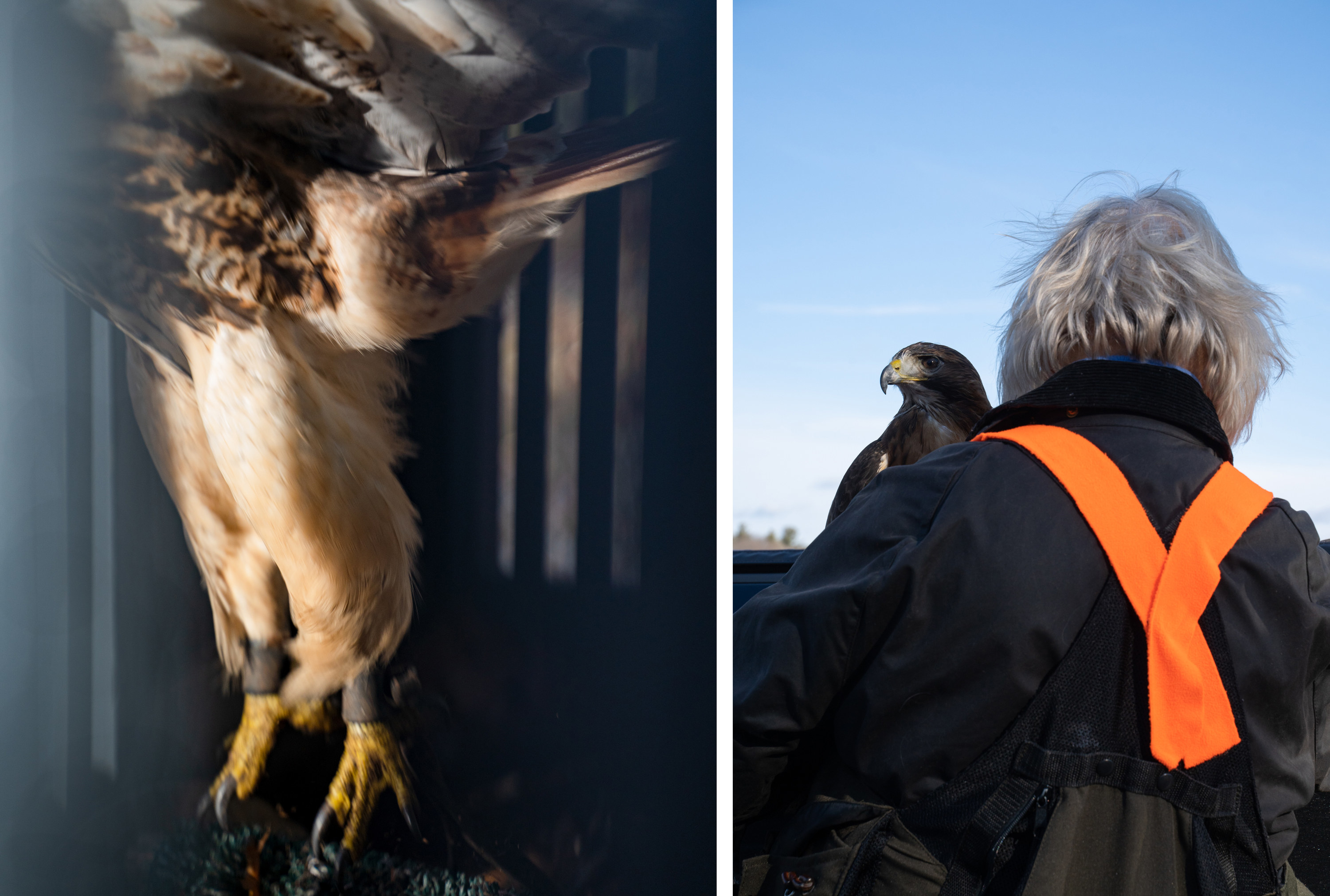
How did the women get into this?
Everyone comes at it from a different place. But the underlying thing behind all of them is that they love animals and they love birds. Laurel is the youngest and she has worked with birds of prey and big cats for 16 years. Rita was a birdwatcher, and she found out that she loved birds, then she found out that she could do falconry and jumped at the chance. Diane is an animal control officer, in addition to raptors she works with many species found in suburban Massachusetts, from coyotes to possums, turtles, and pets.
The women I photographed also all have mews in their yard, just a big space where the animals can fly around and also have perches but mostly get tons of exercise. A tiercel is a male falcon, because it's the third of the size of a female falcon. The mews, the jess, the swivel, the creance — there's, like, a whole jargon.
What drew you to falconry as a photographer?
There’s a National Geographic article from 1920 where they talk about falconry. The birds descend by class, what kind of bird you're allowed to have. To think about these women doing this between the bustle of everyday life and the woods in suburban Massachusetts and New Hampshire, it's wild. Sometimes I think that I would love to be in Iceland seeing the really majestic stuff you see online, but this was a reminder that in nature and in photography, there is beauty all around you, you just have to look. Once you open yourself up to that world, it's crazy how much it will add to your life.
When I realized a falconer worked in my hometown, I had the same feeling, a sense that there was something magical nearby to me this whole time, I just had to look for it.
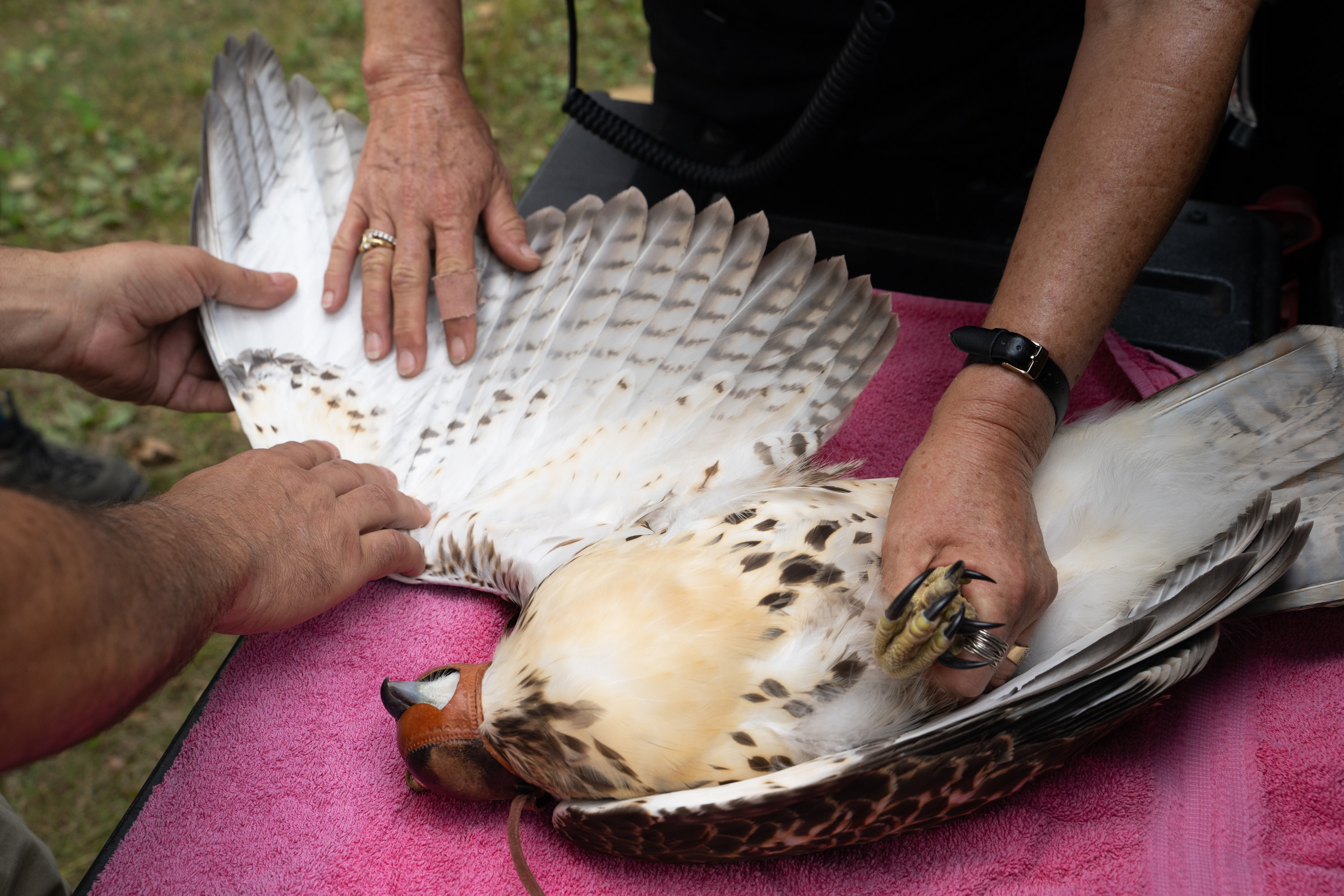
Once you find someone to train you, what’s the next step?
Finding a sponsor is a ton of work. After you achieve that, you fill out an application, take a rigorous written test, acquire housing for the bird, and undergo a site inspection. The application is different in each state, Massachusetts has more regulations than New Hampshire.
In order to have a bird, you must have federally approved housing, a food supply (which is very expensive), a freezer for food all before you go and trap and register a bird. That is all to become an apprentice falconer, there are often tests later on to become a general or master falconer.
I have been on a good amount of hunts, but there haven't been a good amount of successes. The hunter will take the birds out, and put their hunting jesses on, so that if the bird takes off, it won’t get tangled in a tree. They put the bird in the tree, and then they try to flush the game and try to scare the squirrels and the rabbits toward the bird. Hawks just eat whatever they find, and they will eat it alive. If the bird catches something and returns, hunters end the life of the prey in a safe way. This is where the trust comes in from the bird to the human, where you take the food from the bird. In Massachusetts and New Hampshire, the game is usually rabbits or squirrels. The hunter gets the kill together, and then there's certain things that they're not allowed to take — there's so many rules and regulations.
It’s funny because as a falconer, the hunters are cheering for the prey, too, as well as the bird. They are cheering for the environment and the prey’s will to survive as much as they are cheering for the predator’s fight to eat and live.
What is some of the pushback these women experience?
There are a lot of people who judge a book by its cover. If you don't understand the passion and the effort and the time, it can seem like you're stealing a bird from nature and bending it to your will. But there's so much more to that, personally. Nature is a brutal place, as beautiful as it can be. It's a fight to survive. The fact that these women bring themselves into nature in this way is really beautiful. They are plugged in to the environment and understand the structure of where this food comes from and how the ecosystem works.
Hunting has been a part of life for a long time. I don't agree with trophy hunting, but falconry is as far from that as you can get. It's all a natural process for me, as unnatural as it can seem to outsiders. It’s two species working together and chasing something wild. This is the bird being itself alongside a human being; they're doing what they're meant to do. The experience has taught me to keep learning, to ask questions, and just go outside.
